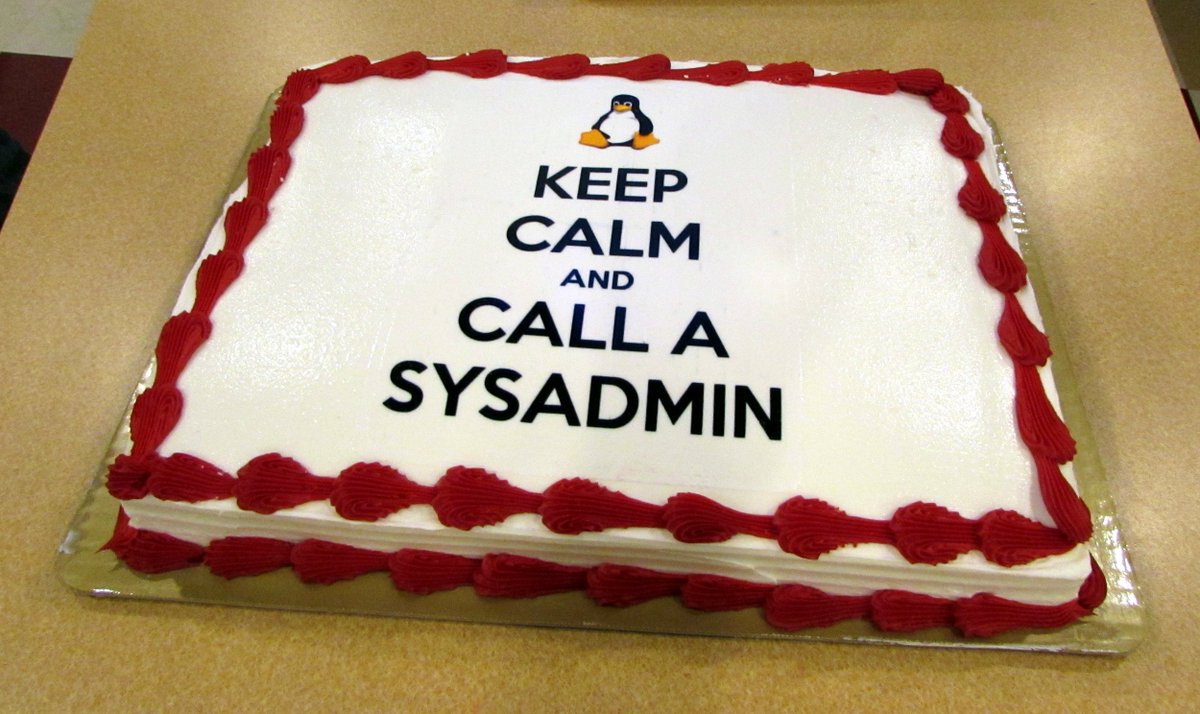
isilon stores both windows sid and unix uid/gid with each file. When nfs client look at file created on windows, file may not have uid/gid in it. isilon looks up the conversion from its mapping db. if it can't find one, it will generate a number, starting at 10000. isi stat # quick overview of cluster nodes and job status isi stat -q # quite (skip) the bottom job status isi stat -q -d # see status aggregated by diskpools
isi_gather_info # collect status of cluster and send to support (usually auto upload via ftp) isi_gather_info --nologs --local-only -i isi_hw_status -f ... # selectively collect info # get a smaller gather log, particulartly remove /var/log/lastlog that are gianormous cp igi_nolastlog /usr/bin/ /usr/bin/igi_nolastlog --esrs --varlog_recent --no-dumps --no-cores -x ifsvar_modules,quotas,ifsvar_tmp,ifsvar_modules_jobengine_cp > /ifs/data/scripts/isi_gather_info.log 2>&1 shutdown -p now # shutdown a single node (the one logged in to). it will put in read-only mode and then power it off. uname -a # At least from OneFS 7, tell Isilon version (and not the underlaying BSD info) uname -rs
isi devices # list all devices of the node logged in isi devices -a status -d 14:bay28 # see status of node 14, drive 28 isi devices -a status -d 14 # see status of node 14, all info isi devices -d 14 # "-a status" is assumed isi devices -a add -d 14:28 # add the drive (after being replaced) isi devices -a format -d 14:28 # often need to format the drive for OneFS use first # it seems that after format it will automatically use drive (no ADD needed) # other actions are avail, eg smartfail a drive. isi_for_array -s 'isi devices | grep -v HEALTHY' # list all problematic dev across all nodes of the cluster. isi_for_array -n 14 isi devices status # node on node 14 only, the command isi devices status # this case equiv to isi devices -d 14 isi statistics drive --long # 6.5 cmd to see utilization of a hd.Use these with care!! eg when Sr Support Engineer says to use them::
isi devices -a stopfail -d nodeN:bayN # isi devices use node number, not internal LNN
# OneFS 6.x stuff... slight changes in 7.x, see below.
id username
id windowsDomain\\windowsUser
# Note that, username maybe case sensitive!!
isi auth ads users list --uid=50034
isi auth ads users list --sid=S-1-5-21-1202660629-813497703-682003330-518282
isi auth ads groups list --gid=10002
isi auth ads groups list --sid=S-1-5-21-1202660629-813497703-682003330-377106
isi auth ads user list -n=ntdom\\username
# find out Unix UID mapping to Windows SID mapping:
# OneFS 6.5 has new commands vs 6.0
isi auth mapping list --source=UID:7868
isi auth mapping rm --source=UID:1000014
isi auth mapping flush --source=UID:1000014 # this clear the cache
isi auth mapping flush --all
isi auth local user list -n="ntdom\username" -v # list isilon local mapping
isi auth mapping delete --source-sid=S-1-5-21-1202660629-813497703-682003330-518282 --target-uid=1000014 --2way
# should delete the sid to uid mapping, both ways.
isi auth mapping delete --target-sid=S-1-5-21-1202660629-813497703-682003330-518282 --source-uid=1000014
# may repeat this if mapping not deleted.
isi auth mapping dump | grep S-1-5-21-1202660629-813497703-682003330-518282
isi auth ads group list --name
isi auth local users delete --name=ntdom\\username --force
rcf2307 is prefered auth mechanism... windows ad w/ services for unix.
isi smb permission list --sharename=my_share
# finding windows sid?? rm --2way ??
# find out Unix UID mapping to Windows SID mapping:
# OneFS 6.0:
isi auth ads users map list --uid=7868
isi auth ads users map list --sid=S-1-5-21-1202660629-813497703-682003330-305726
isi auth ads users map delete --uid=10020
isi auth ads users map delete --uid=10021
isi_for_array -s 'lw-ad-cache --delete-all' # update the cache on all cluster node
# windows client need to unmap and remap drive for new UID to be looked up.
# for OneFS 6.0.x only (not 6.5.x as it has new CIFS backend and also stopped using likewise)
# this was lookup uid to gid map.
sqlite3 /ifs/.ifsvar/likewise/db/idmap.db 'select sid,id from idmap_table where type=1;' # list user sid to uid map
sqlite3 /ifs/.ifsvar/likewise/db/idmap.db 'select sid,id from idmap_table where type=2;' # list group sid to gid map
1: The DB that you are looking at only has the fields that you are seeing listed.
With the current output it will give you the SID and UID of the users mapped.
With these commands you can find the username that is mapped to that information:
#isi auth ads users list --uid={uid}
or
#isi auth ads users list --sid={sid}
2: The entries in the DB are made as the users authenticate to the cluster.
So when a client tries to access the share, the client sends over the SID,
we check the DB and if no entry is found, we check with NIS/LDAP,
if nothing is found there, we generate our own ID (10000 range) and add it to the DB.
Any subsequent access from that SID will be mapped to the UID in that DB.
3: You can run the following to get the groups and the same rules
apply for the GID and SID lookups:
#sqlite3 /ifs/.ifsvar/likewise/db/idmap.db 'select sid,id from idmap_table where type=2;'
#isi auth ads groups list --gid={gid}
#isi auth ads groups list --sid={sid}
4: You can delete the entries in the database,
but the current permissions on files will remain the same.
So when the user re-accesses the cluster he will go through the
process outlined in question 1.
isi auth users flush # flush whole cachedb isi auth mapping flush --sid WindowID # flush only a specific user mapping # note that the cache is per node, so may want to run w/ isi_for_array isi auth users view Username # get UID isi auth users view AdDomain\\Username # get SID isi auth users view --uid UnixID isi auth users view --sid WindowsID isi auth users list # long list isi auth users list --provider file # list only "/etc/passwd" user, should be short isi auth users list --provider local # not sure how local differ from file... isi auth mapping view --uid UnixID isi auth mapping view --sid WindowsID id Username id AdDomain\\Username isi auth ads # info about which AD server isilon is connected to isi auth nis isi auth file list # list which files are used for local user db (it is a berkeley db for user)Lastly, ensure on the windows 7 machine don't have any poisoned cache stored in the Credential Manager.
isi auth ads status -v # check domain controller connectivity. # mode=unprovisioned is fine # Status better be online. disabled or offline are bad news! isi auth ads dc --list --domain=mydomain.com # list avail domain controllers # there is a --site option to force use of local DC isi auth ads user list --domain=mydom.com # list all users... filter thru head or so isi_for_array -n 7-14 'isi auth mapping token --name=ADDOM\\sysadm |wc -l' # check for auth token isi_for_array -n 7-14 'isi auth ads time --domain=nibr.novartis.net' # check clock on specified nodes isi services -a # list (all) isilon services isi auth ads de --reset-schannel # force a reset of the secure channel used to talk to AD isi auth ads spn list # list all the Service Princial Name isi auth ads spn check # system will report if missing SPN # recommend adding CIFS SPN record so that domain controller can better communicate to machine auth for software installation and global policy push isi auth ads spn create --spn=cifs/icylone.mydomain.com --user=administrator isi auth ads spn create --spn=cifs/icylone --user=administrator # check for authentication service daemon being running on all nodes isi_for_array -s 'ps -auxw |grep lwiod |grep -v grep' isi_for_array -s 'ps -auxw |grep srvsvcd |grep -v grep' # other daemons that should be checked: lsassd, isi_msd, lwregd # Isilon 6.5 uses Likewise internally isi_mcp # restart mcp (if did killall -9 isi_mcp). # this get lsas auth daemon running again # count SMB connections isi_for_array -s 'isi smb session list|grep -i computer |wc -l' SVR record in DNS is recommended (but work without) # nslookup > set type=srv > ldap._tcp.dc._msdcs.mydomain.com ... ** server can't find ldap._tcp.dc._msdcs.mydomain.com: NXDOMAIN > ldap._tcp.USEM-0._sites.dc._msdcs.mydomain.com ... ** server can't find ldap._tcp.mysite-0._sites.dc._msdcs.mydomain.com: NXDOMAIN klist # kerberos list kinit # some reinitialization?? isi_run -l user@mydomain.com # switch to command as if login with specified user (test auth)
isi network modify pool ten:ten --sc-rebalance # rebalance SmartConnect IP pool (redistribute them across isilon nodes). # ten:ten refers to the names of vlan the rebalance will work on
Snapshots take up space reported as usable space on the fs.
cd .snapshot
Admin can manually delete snapshot, or take snapshot of a specific directory tree instead of the whole OneFS.
isi quota list Each directory tree that has quota setup make up a Quota Domain. Files can NOT be moved between quota domains. Copy and remove must be used in such case!!
ACE = Access Control Entry
ACL = Access Control List, a list of ACE
DACL = Deny ACL
ls -led # show ACL for the current dir (or file if filename given)
ls -lze # display ACE of a file
ls -l # regular unix ls, but + after the permission bits indicate presence of CIFS ACL
setfacl -b filename # remove all ACL for the file, turning it back to unix permission # works in OneFS 6.x only
chmod -b 600 filename # OneFS 7 onward consolidated setfacl into chmod. chmod -b req specification of new unix perms to give the file
chmod -D filename # remove all ACE, does NOT only strip NTFS ACL, but result in equiv of chmod 000 !!
chmod -N filename # set NULL to DACL, esentially open file for EVERYBODY. avoid!!
chmod 700 filename # will set unix bit as commanded, and drop th ACL (or only cuz all ACE were null?)
chmod +a user DOMAIN\\username allow generic_all /ifs/path/to/file.txt # place NTFS ACL on file, granting user full access
ACL/ACE related flags in chmod:
-E Reads the ACL from stdin, as a sequential list of ACEs, separated
by newlines, and ending in a new line. If the input parses cor-
rectly, the existing ACL is replaced. If the user/group name is
multiple words it must be placed in double quotes. For example:
group "domain users" allow file_read.
-C Returns false if any of the named files have ACLs in non-canoni-
cal order.
-D Removes all ACEs in the security descriptor's DACL for all named
files. This results in implictly denying everything.
-N Removes the security descriptor's DACL and sets it to NULL for
all named files. This results in implicitly allowing everything.
-i Removes the 'inherited' bit from all entries in the named file(s)
ACLs.
-I Removes all inherited entries from the named file(s) ACL(s).
-b Removes the ACL and replaces with the specified mode.
ls -lR | grep -e "+" -e "/" | grep -B 1 "+" # recursively list files with NTFS ACL, short version
ls -lR | grep -e "^.......... +" -e "/" | grep -B 1 "^.......... +" # morse code version, works better if there are files w/ + in the name
isi smb share list # list shares isi smb share view SHARENAME # give details of the named share isi smb share create ... # can create shares via cli as well, but that's not a very windowy thing to do :p but the create mask thing is very tedious in OneFS 7.x WebGUI... isi smb shares create --name=ccdc$ --path=/ifs/db/ccdc --impersonate-user=sys_ccdc --directory-create-mask=0770 --directory-create-mode=0770 --file-create-mode=0660 --file-create-mask=0660 --ntfs-acl-support=no isi smb shares permission delete --share=ccdc$ --wellknown=everyone # remove the default "Everyone" access isi smb shares permission create --share=ccdc$ --group=ADDOM\\grp_site_user --permission=read --permission-type=allow isi smb shares permission create --share=ccdc$ --group=ADDOM\\grp_ccdc --permission=change --permission-type=allow isi smb shares view --share=ccdc$ # in windows, share ending with $ are "hidden"
isi_for_array -s 'isi auth ads dc' # check which Domain Controller each node is using isi_for_array -s 'isi auth ads dc --set-dc=MyDomainController # set DC across all nodes isi_for_array -s 'isi auth ads time' # check clock on each node isi auth ads time --sync # force cluster to sync time w/ DC (all nodes) isi auth ads status # check join status to AD isi auth ads status --refrsh # killall lsassd # reset daemon, auth off for ~30sec, should resolve offline AD problems isi auth ads join --domain=mydom.com --user=administrator --ou=CrossPlatform/USSF/Storage # join isilon cluster to a domain, opt specify OU that obj will be created in AD tree # there is a rejoin option for if something is awry but don't want to unjoin # join need to be done one per cluster, NO need to run on each node
isi nfs exports list | grep hpc isi nfs exports view --id 81 isi nfs exports delete --id 81
isi_log_server add SYSLOG_SVR_IP [FILTER] -or- vi /etc/mcp/templates/syslog.conf isi_for_array -sq 'killall -HUP syslogd'
vi /etc/mcp/templates/sshd_configadd line
AllowUsers root@*Then copy this template to all the nodes:
cp /etc/mcp/templates/sshd_config /ifs/ssh_config isi_for_array 'cp /ifs/ssh_config /etc/mcp/templates/sshd_config'One may need to restart sshd, but in my experience sshd pick up this new template in less than a minute and users will be prevented from logging in via ssh.
isi job status -v
isi job view 12345
isi job cancel 12345
isi_classic job status -v
isi_classic job history # display last 10 jobs
isi_classic job history -l0 # display all history
isi job start FlexProtect
isi_classic job history -j 12345 -v -l5 | egrep -o '[0-9a-f](:[0-9a-f]{4}){2}(::(HEAD|[0-9a-f]*))?' | sort -u # look for bad LIN found in a FlexProject job #12345 (-l5 give lots of info)
isi alert -wide
isi alert cancel nn.12345678 # clear the alert
isi job events list --job -type=FlexProtect
# sync jobs reporting
isi sync reports ls --policy-name=... --limit=1
isi sync job ls
# list the first line status of each sync job
for n in `isi sync poli list --no-footer --no-header | awk '{print $1}'`; do
isi sync reports ls --policy-name=${n} --limit=1
done
isi sync polic view home_mirror
isi sync report list --policy-name=home_mirror
job logs in
/var/log/isi_migrate
/ifs/.ifsvar/modules/tsm/.../policy-id
isi_nodes %{node} %{id} %{lnn} # xref LNN
isi_nodes %{node} :: %{id} :: %{lnn} # display node name, user device number, internal node ID
sysctl efs.gmp.group # see internal disk grouping layout (think of raid group definition).
# Note that unit id displayed is LNN and NOT node id used in commands like isi devices -d NodeID
isi_group_info # same output as sysctl efs.gmp.group (at least on OneFS 7.1.1)
isi filepool default-policy view # see when new data write to disk, which node will store it
isi filepool policies list
isi filepool policies list --verbose | less
isi sync policies list # see if/how data are mirrored to a DR cluster
isi_hw_status
isi_for_array isi_hw_status | grep SerNo # find serial number of all nodes
Case data often stored in /ifs/data/Isilon_Support/nnnn
/var/log/messages is specific to the node
grep gmp-drive-update messages
grep restripe messages
isi get -DD /path/to/file # info on inodes of file (which node has its data), protection level, and many other stats.
# add -d to ensure it does not error out on a directory
# at any rate, really large directory, isi get fails with MemoryError() anyway.
isi get -DDLC 1:30f8:be05::HEAD # lots of info about file, based on LIN
isi_radish -q # query drive status, but don't read.
# essentially display what drive is in which bay, model, serial num.
isi_radish # get usage info, without option won't do anything
# has option for reading SMART data, etc.
isi get -L 1:30f8:be05::HEAD # get file path that correspond to specified linsid
isi get -L 1:6208:2f2b::174438 # inode info do not always ends in HEAD, but maybe 99% do...
cat /var/log/messages | grep linsid=1 | awk '{print $16}' | awk -F= '{print "isi get -L " $2}' | bash
# linsid= is message in log stating inode(?) that cannot be accessed.
egrep EIO /var/log/messages | egrep -o '[0-9a-f](:[0-9a-f]{4}){2}(::(HEAD|[0-9]*))?' | sort -u | xargs isi get -L
# similar effect to above
disi -I diskpools ls -v
du -chs ./
isi_cpr -f SomeHexCode # hex code for first portion of LIN ?
isi_cpr -r ...
sysctl efs.bam.atime_enable=1 # 1=enable, 0=disable sysctl efs.bam.atime_grace_period=1209600 # how often to update last-access time, 1209600 sec = 2 weeks.ref: page 64 of OneFS 7.2.0 cli admin guide

